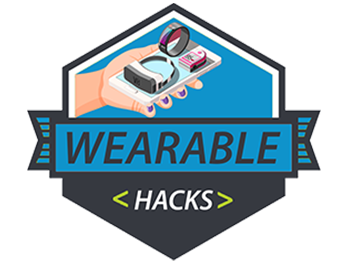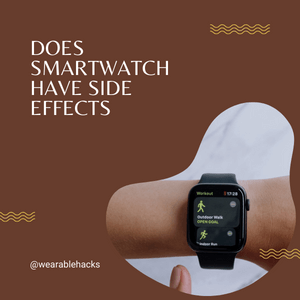Does Smartwatch Have Side Effects
Wearing a tiny computer on your wrist has endless benefits. For example, the recently concluded four-year Apple Heart Study by Stanford and Apple revealed that the Apple Watch could detect atrial fibrillation and other types of heartbeat irregularities. However, despite these benefits, a smartwatch also has some side effects.
The radiation and blue light emitted by a smartwatch can cause serious side effects in some people. As a result, you may experience dizziness, headache, nausea, insomnia, or body dysmorphia. It is advisable to use covers to protect against radiation and have self-control in using smartwatches to overcome the side effects.
For instance, you should stop using your smartwatch two hours before going to bed. Although most smartwatches allow for sleep monitoring, I recommend monitoring your sleep during prescribed days. Taking a shower with a smartwatch can also encourage the rise of bacteria or fungi around your wrist and result in itching.
Read on to find out more about smartwatch side effects and how you can protect yourself against them.
Recommended reading: Is Smartwatch Radiation Harmful?
Smartwatch side effects
It is important to note that the side effects do not occur in every user. Underlying medical conditions or allergies might cause them. Therefore, it is vital to take a haemogram test before wearing a smartwatch to reveal any potential risks in your system that can be made worse by the gadget.
Nevertheless, here are some of the side effects that smartwatch users have frequently reported.
Nausea and headache
These are the significant side effects reported by smartwatch users. Nausea and headaches are a result of adverse reactions to EMF radiations emitted by smartwatches. If you had never used a smartwatch before and experienced these symptoms following your first use; the smartwatch might be the reason.
Try taking it out for a few days and monitor your body’s reaction without a smartwatch. Note, however, that not everyone experiences these symptoms. For example, I know of a friend who uses the Apple Watch, but the girlfriend cannot because of severe nausea.
Insomnia
Users obsessed with using smartwatches go to sleep with the watch and wake up early to continue using it. According to the UC Davis Eye Center, overexposure to blue light emitted by smartwatches hurts the eyes and interferes with our sleep cycles.
Blue light regulates the circadian rhythm, which is critical for controlling natural waking and sleeping cycles. Prolonged smartwatch screen time causes eye strain which could damage the retinal cells, contribute to cataracts, and promote age-related macular degeneration.
Insomnia can lead to memory issues. That is, overusing your smartwatch may result in forgetfulness due to the lack of concentration it promotes. Additionally, this may lead to constant exhaustion, which may hamper your professional life.
Body dysmorphia
Body dysmorphia as a side effect occurs when a smartwatch user does everything, including eating while going through notifications. You should not approach the dining table with your smartwatch if you are that type of person.
According to psychologists, the brain can only concentrate on one task at a time – eating or using a smartwatch. If you multitask, your brain will not recognize when you are satisfied or need more food.
Therefore, eating while using a smartwatch can cause severe overeating since your attention is on the device rather than the food. The side effect is that you acquire a body that you are not proud of, called body dysmorphia.
Distractions
It is effortless to bring your wrist to your face to look at the time or read notifications. There are also several apps you can install in a smartwatch that can keep you preoccupied. Getting used to a smartwatch is as addictive as phone usage among teenagers.
This kind of distraction can result in antisocial behavior, where one is so busy with their smartwatch that they neglect their friends and loved ones during quality time.
As a result, you may get distracted even in situations that require your full attention. An example is distractive driving. The study conducted by The Conversation Africa Inc. revealed that smartwatch use among drivers reduces their ability to assess and react to a problem.
An awareness of the side effects of smartwatches is key to avoiding distractions and ensuring optimal focus on the task at hand.
How to reduce smartwatch side effects
According to the United States Environmental Protection Agency, you can protect yourself against radiation in three ways: Limiting time, increasing distance, and using a shield. On the other hand, you can exercise to exhaustion to have natural periods of sleep uninterrupted by smartwatches to help with insomnia.
Here are the ways to reduce smartwatch side effects;
Use your smartwatch to exercise
Health and fitness tracking are one of the reasons smartwatches are essential. Smartwatch side effects like insomnia and body dysmorphia can be controlled by frequent exercises. You can track your sleep using a smartwatch and analyze your sleep patterns and progress.
A smartwatch tracks activities such as running, jogging, biking, swimming, and walking. When your body gets tired from the exercises, you will naturally fall asleep earlier and avoid using the smartwatch late into the night.
Disconnect smartwatch from the smartphone
This is particularly important if you want to avoid distractions when you are on something important. Remember that most smartwatches are not autonomous and thus require a connection to a smartphone to provide notifications.
By disconnecting your smartwatch from the smartphone, you limit the functionality of the smartwatch. Thus, the probability of causing accidents due to distracted driving is reduced. Similarly, you can turn on airplane mode to keep you free from radiation until you need to use the smartwatch again.
Set a routine
Sticking to a plan can be challenging but setting a routine will be rewarding in the long run. For example, I do not use my smartwatch all the time. There are places, events, and circumstances under which I can wear it.
Setting a routine for when to wear your smartwatch will keep you away from the compounding side effects of radiation. Decide when your smartwatch is very necessary and use it during those times.
Summary
Smartwatches have countless benefits, from tracking our steps to monitoring our heart rates. However, not everyone can enjoy the flexibility of having one because of its side effects. If your body has shown resistance against smartwatches and you like them, you can still purchase one.
To protect yourself from the side effects, make it a habit to exercise and use your smartwatch to analyze and make changes to your sleeping patterns. That will prevent insomnia. You can set a routine to abstain from the smartwatch during certain times to reduce EMF radiation exposure.






